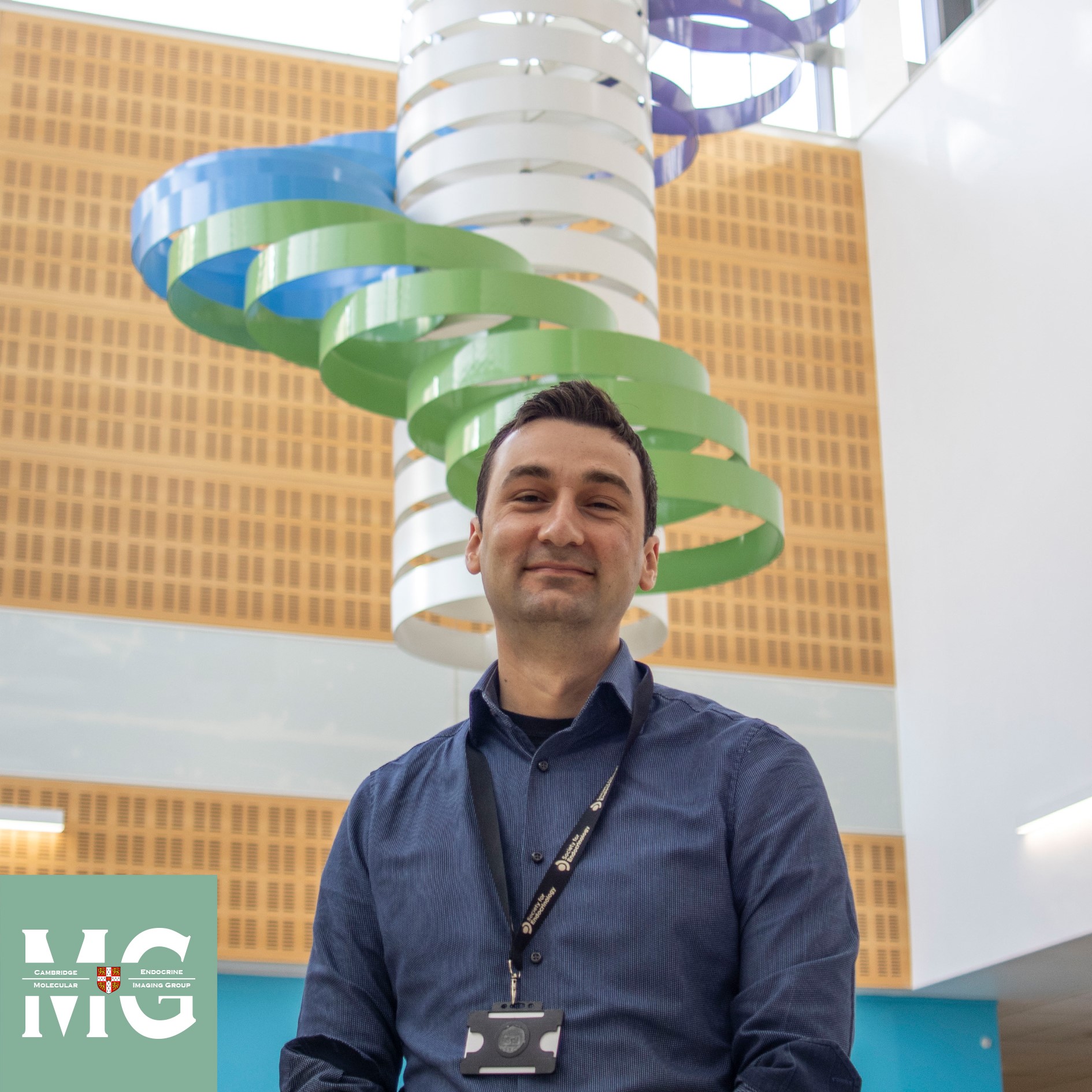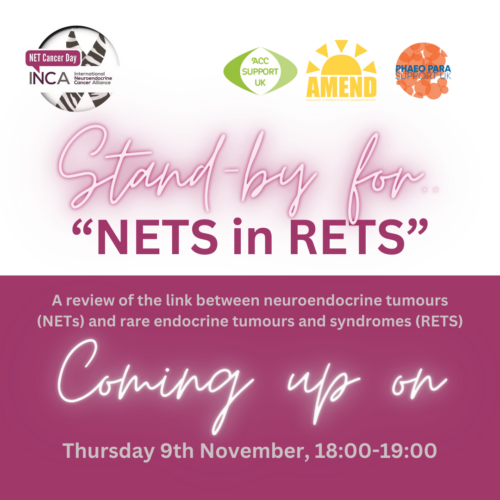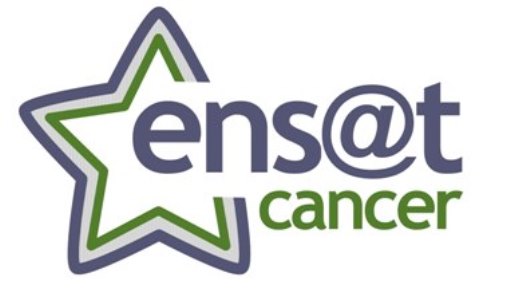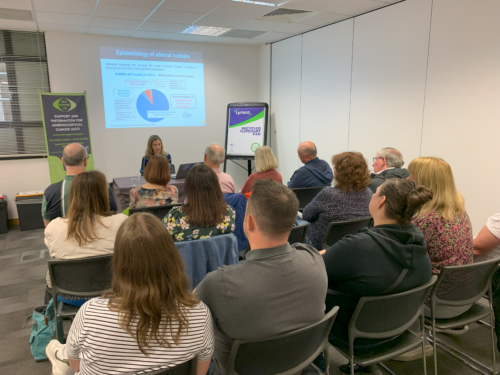This year’s award is made possible once again thanks to the Elliot Dallen Charitable Trust and their 3-year commitment of £10,000 per year for research into ACC. It was certainly encouraging to receive 3 excellent applications from UK researchers this year which made the judge’s jobs a challenge when selecting just one. However, we are pleased to report that the 2023 ACC Research Award has been awarded to Dr James MacFarlane and team at Cambridge University Hospitals NHS Foundation Trust for their project entitled, ‘Exploring CYP11B1 and CYP11B2 expression as a novel molecular risk stratification tool in adrenocortical carcinoma.’ Our congratulations to Dr MacFarlane and team.
Lay Summary
Exploring CYP11B1 and CYP11B2 expression as a novel molecular risk stratification tool in adrenocortical carcinoma
Adrenocortical cancer (ACC) is an unpredictable disease. Even when scans suggest that surgery has successfully removed all the visible tumour there remains a significant risk of recurrence. A chemotherapy drug called Mitotane may be given after surgery with intent to destroy any remaining pockets of microscopic adrenal cancer cells. However, it is often associated with several unpleasant and potentially serious side effects including: the need to take steroid tablets due to low levels of the hormone cortisol, feeling or being sick, excessive tiredness and weakness and liver changes. A recent study (ADIUVO trial) has shown that many patients treated with mitotane do not gain any benefit in terms of their outcome. Our existing tools for matching patients with the most appropriate treatment (precision medicine) are limited for ACC. Enzymes are part of the machinery within the adrenal gland that produce hormones. The levels and function of these enzymes are recognised to change in ACC. There are two enzymes, involved in the final stages of hormone production, of particular interest to our group (CYP11B1 and CYP11B2). We hypothesise that the pattern of change can give information about how likely an ACC is to recur and could be used for risk stratification and to help guide management. A local pilot study has shown significant variability in the staining for the enzymes amongst 25 paraffin-embedded tumour samples. It appears that patchy or reduced staining for CYP11B1 portends a worse outcome. We suspect that staining a single slice of these large, complex tumours gives an incomplete picture – hence we propose investigating more slices (3-4) in more tumours (75-100) to be able to draw meaningful conclusions with appropriate statistical power. The relevance of these particular enzymes is that levels/activity can be investigated in the tumour prior to surgery via a specialised type of scan (11C-Metomidate PET/CT or 18F-CETO PET/CT). Our hope is that this study could provide a scientific basis for further work exploring the use of 18F-CETO PET/CT scans in the pre-operative setting to facilitate personalised treatment for ACC.







